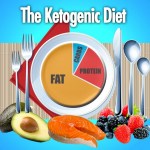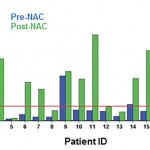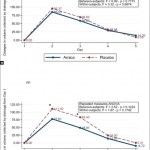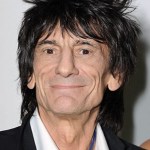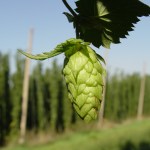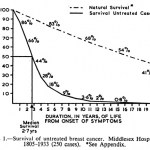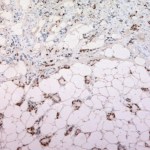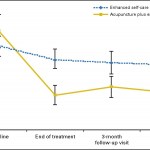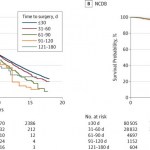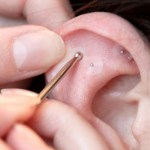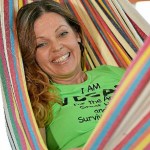breast cancer
It's October again, which is Breast Cancer Awareness Month. As someone who takes care of breast cancer patients, I have a love-hate relationship with October. On the good side, I like seeing positive messages about what's going on in breast cancer research, advocacy, and clinical treatment. On the other hand, the quacks come out. I also see a lot of bad breast cancer studies. You might think that I'd like that too because it provides blog fodder. I could actually do without that, but in this case I happened to come across a "study" that illustrates why I detest how those promoting unproven…
Over the last two or three weeks, you might have noticed a disturbance in the alternative medicine force. Unlike disturbances in the Force in Star Wars movies (which usually result from horrors like the obliteration of millions of lives on Alderaan), this was a joyous, celebratory disturbance in the mystical nonexistent energy fields in which promoters of alternative medicine cancer cures and haters of chemotherapy and "conventional" cancer treatment (the two almost always go together) thought that a major study in a reputable journal had put yet another "final nail in the coffin of…
"Integrative medicine" is a term for a form of medicine in which pseudoscience and quackery are "integrated" with real medicine. Unfortunately, as Mark Crislip puts it, when you mix cow pie with apple pie, it doesn't make the cow pie better; it makes the apple pie worse. Unfortunately these days, there's a lot of cow pie being mixed with apple pie. Worse, it's gotten to the point where integrative medicine is subspecializing. For instance, there is now a specialty known as "integrative oncology," which particularly burns me. Indeed, supportive care oncology has been very susceptible to the…
I like to refer to homeopathy as The One Quackery To Rule Them All, so much so that I almost always call it that within the first two paragraphs of any post I write about some tasty bit of homeopathy pseudoscience. It's also a wonderful tool for teaching critical thinking because it's easy to explain and people grasp intuitively why homeopathy is pseudoscience when it's explained properly to them. Basically, it's because of homeopathy's two laws. The first is the Law Similars, which states that, relieve a symptom, you must use something that causes the symptom. It's nonsense. There's no…
Old fart that I am, I’ve been a fan of The Rolling Stones since the mid-1970s, when I was in junior high school. Over the years, I’ve accumulated pretty close to all of their studio albums—and even bought multiple remastered versions of classics like Exile on Main Street and Beggar’s Banquet—and got access to the rest when I discovered the joy of streaming through Apple Music. Granted, the Stones went through a rough patch, creatively speaking, in the 1980s (the less said about Under Cover and Dirty Work, for instance, the better) and nothing they’ve done since the late 1970s has lived up to…
I’m always hesitant to write about matters that are more political than scientific or medical, although sometimes the sorts of topics that I blog about inevitably require it (e.g., the 21st Century Cures Act, an act that buys into the myth that to bring "cures" to patients faster we have to neuter the FDA and a retooled version of which is still being considered). This is one of those times. Yesterday, I woke up to the news that President-Elect Donald Trump had chosen Rep. Tom Price (R-GA) as his new Secretary of Health and Human Services. The Department of Health and Human Services (DHHS),…
One of the most effective spin techniques used by advocates of “integrative medicine” (also sometimes called “complementary and alternative medicine,” or CAM for short) to legitimize quackery has been to claim basically all non-pharmacologic, non-surgical interventions as “integrative,” “complementary,” or “alternative.” Thus, science-based interventions such as diet changes to treat and/or prevent disease, exercise, and other lifestyle alterations are portrayed as somehow so special, so outside the mainstream, that they need their own specialty, “integrative medicine,” even though they are…
The Supreme Court of Canada ruled this month that breast cancer can be considered work-related under the country’s workers’ compensation law. The 7-1 ruling supported the case of three women who were employed as lab technicians at a hospital in British Columbia. Over a 20 year period, exposures in their work environment included solvents known to be carcinogenic and emissions from incinerated medical waste. Four other workers in the hospital lab also develop breast cancer.
The women filed claims for workers’ compensation arguing that their exposure to carcinogens on-the-job was a factor in…
Some sort of Hops Flowers Substance is a common dietary supplement used by post-menopausal women. A recent study looks at one molecule extracted from hops to see if it could help reduce the chance of getting breast cancer.
The paper is in the journal Chemical Research in Toxicology, and is called Hop (Humulus lupulus L.) Extract and 6-Prenylnaringenin Induce P450 1A1 Catalyzed Estrogen 2-Hydroxylation, by Shuai Wang, Tareisha L. Dunlap, Caitlin E. Howell, Obinna C. Mbachu, Emily A. Rue, Rasika Phansalkar, Shao-Nong Chen, Guido F. Pauli, Birgit M. Dietz, and Judy L. Bolton.
One factor that…
To say that I, as a cancer surgeon, am not a fan of Ty Bollinger is a massive understatement. He’s not exactly one of my fans, either, but I view the hatred of a man like Bollinger directed at me as a badge of honor. Indeed, if a man like Bollinger didn’t detest me, I would view my efforts as a failure because I view him as a quack whose desperately deceptive film series The Truth About Cancer has been correctly dubbed untruthful about cancer by Harriet Hall and whose message has led cancer patients into rejecting conventional medicine in favor of treating deadly cancers with alternative…
So-called “alternative” medicine is made up of a hodge-podge of health care practices and treatments based on beliefs that are unscientific, pre-scientific, and pseudoscientific. These modalities include practices as diverse as homeopathy, traditional Chinese medicine, reflexology, reiki and other forms of “energy medicine” based on vitalism, chiropractic, and naturopathy, and that’s a short list of the quackery that falls under the rubric of the term “alternative medicine.” Unfortunately, this unscientific, pre-scientific, and pseudoscientific hodge-podge of treatments rooted in nonsense are…
Arguably, one of the most popular forms of so-called "complementary and alternative medicine" (CAM) being "integrated" with real medicine by those who label their specialty "integrative medicine" is acupuncture. It's particularly popular in academic medical centers as a subject of what I like to refer to as "quackademic medicine"; that is, the study of pseudoscience and quackery as though it were real medicine. Consider this. It's very difficult to find academic medical centers that will proclaim that they offer, for example, The One Quackery To Rule Them All (homeopathy). True, a lot of…
I often describe "integrative medicine" as integrating quackery with medicine because that's what this inadvertently appropriately named branch of medicine in essence does. The reason, as I've described time and time again, is to put that quackery on equal footing (or at least apparently equal footing) with science- and evidence-based medicine, a goal that is close to being achieved. Originally known as quackery, the modalities now being "integrated" with medicine then became "complementary and alternative medicine" (CAM), a term that is still often used. But that wasn't enough. The word "…
Every so often there are studies that I really mean to write about but, for whatever reason, don't manage to get to. Sometimes I get a chance to get back to them. Sometimes I don't. This time around I'm getting back to such a topic. This time around it's a topic I've been meaning to write about is based on a couple of studies that came out three weeks ago that illustrate why, even if a patient ultimately comes around to science-based treatment of his cancer, the delay due to seeking out unscientific treatments can have real consequences.Consider this (probably) the last unfinished bit of…
Several years ago, Harriet Hall coined a term that is most apt: Tooth fairy science. The term refers to clinical trials and basic science performed on fantasy. More specifically, it refers to doing research on a phenomenon before it has been scientifically established that the phenomenon exists. Harriet put it this way:
You could measure how much money the Tooth Fairy leaves under the pillow, whether she leaves more cash for the first or last tooth, whether the payoff is greater if you leave the tooth in a plastic baggie versus wrapped in Kleenex. You can get all kinds of good data that is…
I like to point out from time to time that arguably the most striking difference between science-based medicine (and the evidence-based medicine from which we distinguish it) and alternative medicine, "complementary and alternative medicine" (CAM), or (as it's called now) "integrative medicine" is a concerted effort to change practice for the better based on science and evidence. In other words, in SBM, we are continually doing studies to improve practice. These studies take on two general forms: Comparing new treatments with old to determine if the new treatments work better and, as has…
I consider posts like the one I'm writing now to be public service, an obligation. There are times when I don't want to do them, when they become so sadly, depressingly repetitive in overall outline (and, unfortunately, likely outcome) that it takes an effort to begin. However, given that October is Breast Cancer Awareness Month and as a result these sorts of stories seem to pop out of the woodwork this time of year, I feel I must. It doesn't matter that I just discussed another one of these cases a mere month ago. This time around, the article appears (as is so frequently the case) in The…
One of the things that feels the weirdest about having done the same job, having been in the same specialty, for a longer and longer time is that you frequently feel, as the late, great Yogi Berra would have put it, déjà vu all over again. This is particularly true in science and medicine, where the same issues come up again and again and again, often with the same arguments on either side. Sometimes the same players are even involved. So it is with mammography recommendations. Indeed, I'm feeling déjà vu all over again right now, as I read headlines like Women advised to get mammograms later…
It just occurred to me that Breast Cancer Awareness Month is fast approaching, not the least of which because I did a Komen event last night as one of the breast cancer experts. I sometimes wonder if I suffer from a bit of the imposter syndrome, because sixteen years on I still sometimes can't believe that I'm considered some sort of "expert" in breast cancer, much less anything else. It's not that different than when, as a freshly minted faculty member, I was sent out to our cancer center's affiliates to attend their tumor boards as the "expert" from the mother ship.
In any case, in my…
I didn't think I'd be writing about acupuncture again so soon after deconstructing another "bait and switch" acupuncture study less than a week ago. True, the quackery that is acupuncture and the seemingly unending varieties of low quality studies published to make it seem as though there is anything more than nonspecific placebo effects invoked by sticking needles into the skin against an even more unending variety of diseases, conditions, and complaints. Basically, according to its adherents, acupuncture can treat almost anything. Particularly galling to me as a cancer surgeon is the…
